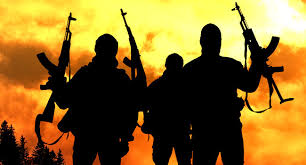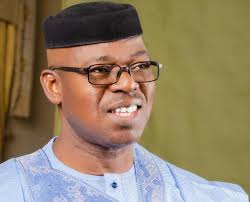Reflections: How at 11 years old, Biafra leader slapped a white man
At age 11 or in 1944 to be exact, Biafra leader οEmeka Ojukwu slapped a white teacher at King’s College. He was expelled and his father sent him to Epsom College, England to finish his High School before proceeding to Oxford University.
See details below:
A British member of the KC teaching staff, one Mr. Slee, confronted the students, crossed the barricade, and taunted them. Obviously, the students wouldn’t dare attack their teacher with cutlasses but little Emeka Ojukwu (aged 11), who was a junior boy at the time, and who was tasked with delivering water to the senior boys couldn’t stomach Mr. Slee’s violation of the students’ stronghold.
Here’s Emeka Ojukwu’s recollection:
“…I was the person carrying the water to the guards at the front of the boarding school. The man guarding the gate at the time everything took a different shape was the great Ovie-Whiskey. There he was, formidably attired in his shorts and wrapper around his waist. His job was to frighten anybody that was coming. We the small ones had the job of carrying water to them whenever it was needed. It was then I noticed my Nature Studies master, Mr. Sleigh (sic), striding towards Bonanza Gate from the police station. ..Clearly he was coming to disperse the whole notion of strike. I don’t know what got into my head. I dropped the bucket of water and ran as fast as I could towards Mr. Sleigh, got to him, leapt up in the air and gave him the biggest slap I could muster…And that sealed my fate”.
Mr. Slee immediately reported the assault he received from Emeka Ojukwu to Principal Clift. Considering Principal Clift’s earlier intolerant attitude to the student petition, it is no surprise that Clift escalated the situation: later that day, Clift and Slee arrived with the Assistant Superintendent of Police (ASP) MacNamara, many policemen and a fire brigade officer from the Tinubu Fire Station who cut open the locks of the boarding house building.
Approximately 100 students were arrested and detained at Tinubu Police Station.
Bailouts for the Students and Court Trials
The students were bailed out later in the evening of their arrest by Sir Adeyemo Alakija and Samuel Akintola, then Daily Service newspaper editor.
75 senior students were then charged to court at the Santa Anna Court, Tinubu. Emeka Ojukwu was specifically charged to court for assault. The students were defended by Eusebius James Alexander Taylor and L.J. Dosunmu while the prosecution was headed by James Egbuson.
The trial was carried in the dailies and was closely observed by the public.
Fortunately, the boys were acquitted and discharged but that was not the end of it.
The British Colonial Government and Principal Clift Strike Back with WW2 Conscription and Expulsions
The British Colonial Government responded within hours of the court judgement: 8 students were conscripted into the WW2 bound Army. Very little is known about the conscription rationale. The boys conscripted were: Ayoola Gladstone, Yon Dakolo, Adedapo Aderemi, eldest son of Ooni of Ife, Adesoji Aderemi, Victor Ologundudu, Valentine Osula, Akanni Pratt, Yinka Akpata and Okparaocha who reportedly died in service at Burma.
Principal Clift expelled 11 year old Emeka Ojukwu. Sir Louis Ojukwu (Emeka’s father) then sent him to Epsom College in England to continue his education.
Femi Okunnu notes that some boys were sent away from KC by Principal Clift to other schools within Lagos such as CMS Grammar School, Methodist Boys High School, Baptist Academy and St Gregorys. Those sent away from KC include: Charles O. Idowu, E.E. Idehen, R.S. Kokori, C. K.Ikemefuna, Adenekan Ademola, Tira Bello-Osagie, Victor Ovie-Whiskey, C.H.Oyewo, S.A. Fakoya, O. Awani, S.S. Young-Harry, Thaddeus Eziashi, and M.Agidee.
Nigerian Lobbying to Reverse Outcomes & the NCNCs Formation
Displeased by the conscription and expulsions, the National Union of Students (NUS) and the Lagos intelligentsia lobbied to reverse the conscriptions and expulsions but their efforts were unsuccessful. The NUS reached out to leaders such as Herbert Macaulay (now the grand old man of Lagos politics at 80 years old), Comet Newspaper owner/publisher Duse Mohammed Ali, and rising politician Nnamdi Azikiwe for support. On June 10, 1944, the NUS convened a gathering at Glover Memorial Hall in Lagos to discuss nationalism and the KC strike. Herbert Macaulay presided over the meeting (with Ali and Azikiwe in attendance) with a resolution to form a national council or committee (i.e. the NCNC) comprising representatives from political parties, trade unions, literary associations, professional associations, religious groups, social clubs, and women’s organizations. Invitations were sent to these groups, many of whom attended the inaugural NCNC meeting in August 1944 “determined to work in unity for the realization of our ultimate goal of self-government within the British Empire”.


